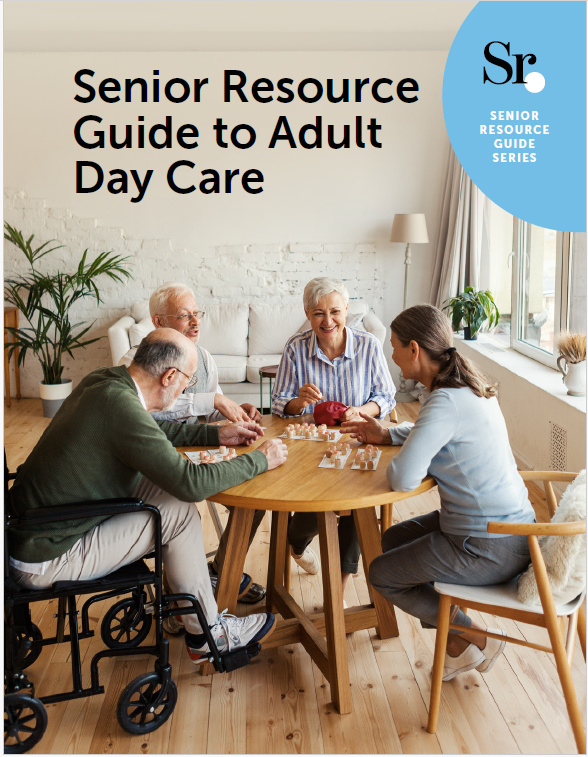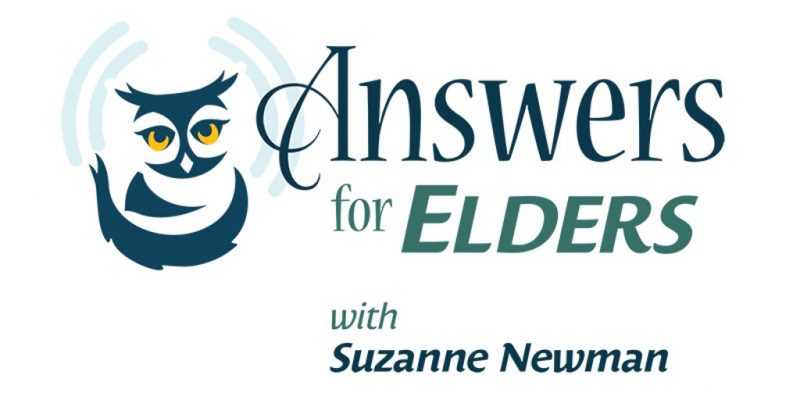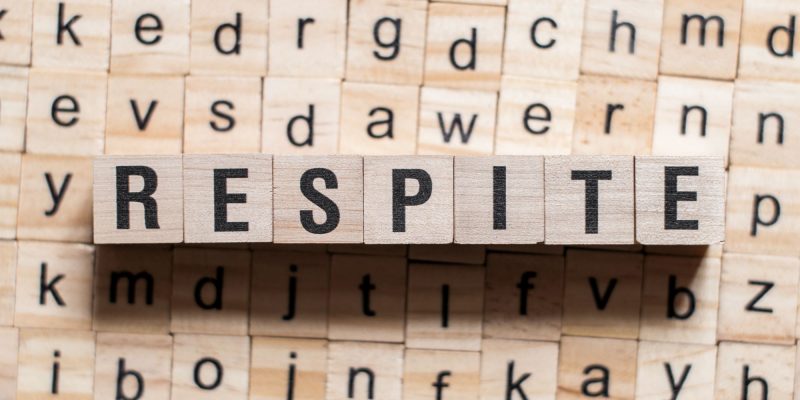home care (Page 7 of 49)
Test Procedures for Dementia
Suzanne is joined by Dr. Paul Winner, the Senior Director of the Premiere Research Institute and Attending Neurologist at Palm Beach Neurology in West Palm Beach, Florida.
When family members see that mom may be fine, but maybe Dad starts to have some memory issues. How do you start the process of having the conversation to get them tested? Dr. Winner says, “I think you want to let people know that we have very good diagnostic methods today. We can actually determine what it is. It could be something simple. So you need to go to a center, essentially a memory disorder center. If you really have a problem, something that’s essentially now affecting the family, that’s no longer, “I’m worried if I have a little bit of an issue with my memory,” then you have to go to a memory disorder center. They need to get to a place that can do 1) a very, very good history and 2) a very good physical exam, and they’re looking at domains of how the brain works. A good history can determine how long it’s been that there’s been memory issues. What was the initial problem? Was it a short term memory issue, was it an immediate memory issue, was it a behavior issue? Was it a movement problem? What is it? Because there’s all different kinds of dementias, or maybe it’s something else. A medication got changed a year ago and that’s when this all started. So there are some simpler problems. There’s thyroid conditions in the family and their medicine got changed. There’s a lot of different variables. So a very good history, a very good physical exam. You need to do laboratory studies, basic laboratory studies, to make sure there is not a problem with thyroid. There isn’t a B12 deficiency. There isn’t an autoimmune or infectious process. This is not expensive and not hard to do.
What happens next? Dr. Winner explains, “Next is a nerve behavioral test. You need proper testing on what is going on with the brain. Is the aspect that’s wrong? Is it memory? Is an executive function? Is it processing speed? All the different aspects, attention problems, is there a non-functional area or multiple areas? This gives you a clue right away of what you’re dealing with. Then you need a picture of the brain. You need to make sure there’s not another explanation, or maybe there’s a mix, there could be two dementias. Sometimes a brain tumor caused this. Sometimes it’s a meningioma with edema, and we can treat that, and they’re all better pretty quickly.
“Then let’s say we go through that and it’s suggestive of Alzheimer’s dementia. Well, you can make a clinical diagnosis, but you’re not going to be right a lot of the time. You need to go to the next level. The next level is bio markers. We have serum bio markers, but essentially the gold study we should do is to use a PET scan, an amyloid PET scan, and/or add to that a tau pet scan. Two proteins are involved in Alzheimer’s, amyloid and tau, so we can tell whether they’re present. If you do not have significant amyloid deposits in the brain, you do not have Alzheimer’s disease, period. But that test is expensive. It’s $5, $6, $7,000, and it’s not covered by insurance right now.
“Why is it so important to do this? We need to know the diagnosis. We must get it correct, because certain medicines are being developed for Alzheimer’s. Others are being developed for general dementias, others for Parkinson’s. Others may work at all of these different dementias. We need to know what the person has, so we can select the right medicine as we move forward.”
Learn more about the Athira Pharma Alzheimer’s LIFT-AD research study, Interested in learning more? Contact Premiere Research Institute at (561) 296-3838, contact Dr Winner at (561) 851-9400 or learn more about him here. This podcast is courtesy of Athira Pharma.
Getting Involved in Alzheimer’s Research Studies
Suzanne is joined by Dr. Paul Winner, the Senior Director of the Premiere Research Institute and Attending Neurologist at Palm Beach Neurology in West Palm Beach, Florida.
Dr. Winner says, “We’ve been through research for a very long time. Most of our patients and research are actually the patients from our practice. We’ve been doing the best we can to try to help them. It has been hard. It has not been easy for many years. But things have changed. About three years ago, we started to get a much better understanding of this illness. We had some of the right medicines, the monoclonal antibodies to remove amyloid. We just didn’t have the right dose, and we were studying them for too short a period of time, because we didn’t understand the disease and what was happening. That has changed. We now understand to use the higher doses. We have a better handle on determining what side effects will occur in what patients. So we have bio markers that let us know: this is an Alzheimer’s patient, this is a patient who has this genetic profile, this is the right study for them, this is the right monoclonal for them, because we already know the paradigms. We didn’t know that many years ago, but we do know that now, and now we’re seeing that we need a little more time. Patients have to give us a little more time. The medicines are working, but many of them take a year, two years, to really show that clinical response that we want to see. So that’s very important, and that’s part of learning and educating. But probably the most important thing to take away is that it’s not just one or two medicines anymore. We are going to use multiple medicines depending on the situation.
“But the very first thing you have to do is get diagnosed correctly. So if there’s any history in your family of dementia, even if it wasn’t diagnosed as Alzheimer’s, you need to be evaluated, if you’re 50 or older, because that’s where most of our studies start, we may even go younger than that. Definitely by 60 you need to start to be evaluated to see if you have those risk factors in your family. If you’re not, and your family’s lived to 105 and no one’s ever had dementia, you may not be at risk. Still not a bad idea, though, at least by 60 or 65, to start getting an occasional neuro-behavioral assessment. Get a baseline of where your cognitive function is. Get a baseline of how your brain is working. We have something called an EVOX. It’s a very easy machine. It’s a much more sophisticated machine than an EEG. They’re a little expensive and hard to do right now, because we don’t have enough machines in the country. But eventually they shouldn’t be as expensive, and they can be used as a screen. No amyloid, you don’t have Alzheimer’s. Present, doesn’t mean you have Alzheimer’s yet, doesn’t mean it’s gonna be bad yet, but you do have to follow up. You can’t just forget about that, because we can take it out and get you better if it is something significant.”
“Right now, the most advanced evaluations and the most advanced treatments are inside the research. We are still recruiting for this new targeted Athira 1017, the FOSCO, we still have some recruitment going on. We’re also recruiting for many of the other studies as well. Right now, all these bio market tests, different ones are done for different reasons. Many of them, you get a PET scan or a tau scan, some of you get both, some of you get the whole thing, some, you just get segments that are needed, to prove whether the medicine is working or not working. All of them have neuro-behavioral testing done serially throughout, to see how you’re clinically doing. But what’s more important than anything: how you’re doing, and we can monitor that. How are you doing with your family, how is the caregiver doing? You can’t just use medicine alone as well. You still have to do exercise, you still have to do diet, you still have to control the blood pressure, it’s like any chronic illness. This is a neuro-degenerative disease, a chronic illness that has to be fought at every single level, and you have to support the caregiver, the family, and you have to obviously keep the patient number one.”
Learn more about the Athira Pharma Alzheimer’s LIFT-AD research study, Interested in learning more? Contact Premiere Research Institute at (561) 296-3838, contact Dr Winner at (561) 851-9400 or learn more about him here. This podcast is courtesy of Athira Pharma.
Memory Loss is Not Normal In Aging
Suzanne is joined by Dr. Paul Winner, the Senior Director of the Premiere Research Institute and Attending Neurologist at Palm Beach Neurology in West Palm Beach, Florida.
Dr. Winner emphasizes, “Memory loss is not normal in aging. That is very clear to us now as we study this. When we forget something in our 20s or 30s, we don’t even think twice about it. When we get in our 50s, 60s, 70s and we forget something, we wonder: am I getting Alzheimer’s? First of all, it takes a long time to get Alzheimer’s. The initial pathology is the depositing of something called A beta 42, a toxic protein called an amyloid. It’s 15 to 22 years from the time that metabolic problems starts till we make the clinical diagnosis using clinical signs of Alzheimer’s disease. So a lot of things are happening in the brain. People are normal for a long time while this biology is happening underneath with regard to the deposition of amyloid. And then there’s another thing that happens. A deposition of another protein happens. The amyloid starts to cause trouble with the synapses, the communications in the brain. That’s when you’re starting to see the short-term memory issues in something called the temporal lobe region. And then you get, essentially, problems with the deposition of another protein called phosphorylated tau nerve cells are starting to die, and now you’re getting more prominent symptoms. All of this takes years to decades happen.
Pay attention to an individual, comparing how they’ve been all their life, and if something there seems to be memory loss in aging, that’s the time for concern. Dr. Winner explains, “An example I had recently: a couple came in and the husband noticed that when she’s cooking, she’s forgetting to put certain ingredients in, and she’s a fantastic cook according to her husband. He’s noticed over the past year or so that things aren’t made right. He actually sees her shying away from cooking certain things. So we start to see people start to pull back. They know something’s wrong, so so they say, let’s go out to dinner more. I’m not gonna make that. I don’t like making that anymore because it’s complicated, or socially, they’re finding it’s hard to put a word in a sentence. They just can’t get the right word in the sentence. And now they feel a little funny if they’re going to go out socially and in a conversation, they can’t keep the conversation going. They lose track and they realize something’s wrong. I don’t want to show this to other people, and they start essentially withdrawing, and that makes the situation worse. Human beings need to be interactive with other human beings.
Dr. Winner has participated as Investigator and Principal Investigator in numerous clinical studies.
Learn more about the Athira Pharma Alzheimer’s LIFT-AD research study, Interested in learning more? Contact Premiere Research Institute at (561) 296-3838, contact Dr Winner at (561) 851-9400 or learn more about him here. This podcast is courtesy of Athira Pharma.
What Is Respite Care and Where Can I Find It?
Respite care is any service or support that provides short-term relief to caregivers. Let’s talk about the basics of respite and how to find help near you!
10 Best Senior Meal Services of 2022
Let’s count down the best senior meal services to order from in 2022!
Music Mends Minds, Part 4
Carol Rosenstein, the founder of Music Mends Minds, joins Suzanne to talk about Rotary programs and other ways you can get involved with the program.
Carol explains their partnership with Rotary International: “If you’re a Rotarian, please give me a call. We can talk about you creating a music group through your club as a community outreach program, and you will take that into an adult community services organization like Culver City Senior Center, and you can sponsor a music group, bringing music to the seniors in your neighborhood. Rotary is very busy in the Washington state area. We must have eight or ten different music groups already that are sponsored by rotary clubs. You can go onto our website and look to see where our music groups are located, scroll through and find those that are in the Washington area.”
Suzanne says, “Please go to https://www.musicmendsminds.org/. Check out what they do. This is an organization that makes an incredible difference in hundreds of thousands of lives. And if you consider making a donation, it makes all the difference, because this can transform the lives of those suffering from neuro-generative diseases, Parkinson’s, Alzheimer’s, dementia, depression, loneliness, you name it.”
For more information, email Carol at info@musicmendsminds.org/, call her at (818) 326-0500, and you can donate to keep them growing at https://www.musicmendsminds.org/.
Music Mends Minds, Part 3
Carol Rosenstein, the founder of Music Mends Minds, joins Suzanne to talk more about how her program expanded during COVID.
Carol explains, “COVID closed us down, and it was a nightmare. And a board certified music therapist hired to participate in our in-person groups said there’s something called Zoom. Zoom? Let’s Zoom. So seniors showed up on Zoom, and we started to connect with people from all over the world, because it doesn’t matter where you’re located. We continued our growth spurt in spite of the closing down. Today, we’re still on Zoom three times a week 11:30 to 12:30 Monday Wednesday Friday, and we’re singing, socializing, and having the best time ever on Zoom.”
The kind of music they feature is from the older generation, because our memory recalls all of the oldies but goodies, and so when you sing an oldie but goodie, you’ve got the music as the anchor. “Music excites those cells from yesteryear, and that’s why our seniors will wake up and sing a song. Sing a song – it’s as palpable and important as having that pill out of your medicine jar. And the side effects are pure joy and increased brain function, not only for the patients, but the caregivers and the families at large. It’s a win win win situation with music.”
For more information, email Carol at info@musicmendsminds.org/, call her at (818) 326-0500, and you can donate to keep them growing at https://www.musicmendsminds.org/.
Music Mends Minds, Part 1
Carol Rosenstein, the founder of Music Mends Minds, joins Suzanne to talk about how music transforms people’s lives, particularly those suffering from Parkinson’s disease, dementia, or Alzheimer’s.
Carol was deeply affected by this story: “In 1992, Dr. Concerto Tomano was a newly graduated music therapist. She was summoned to a local facility of end-stage dementia patients. The facility said, come and entertain our people. They are “the water and feeding group” because their brains are gone. She showed up in a communal area flanked by dementia patients that were in wheelchairs, some with mittens and their hands secured so that they couldn’t get out of the wheelchair, others that were standing around in catatonic states, and she started to play the piano. Within seconds, these people started singing, mouthing, and moving to the music.
“I was so transfixed by her story. My precious Owen, who is now gone almost two years, had Parkinson’s and dementia. Ten years into the journey, he had medication issues. As a Parkinsonian patient, he was taking synthetic dopamine several times a day. His brain was on overload. He was hallucinating, he was agitated. Our neurologist read these clinical findings, and said, it’s the dopamine, Carol, bring down the dose. You know that your beloved becomes a wet noodle – the hallucinations were gone, the agitation was gone, but my guy was spent. He played the piano socially, sitting at the piano, as a wet noodle. I would see him become a dry one. Within five, ten minutes he had re-entered the environment as if I had given him a dose of med. And seeing this repeatedly, and with my clinical eye, I told the doctor, and he said that we’re watching the power of music changing brain chemistry.
“I said, can I get a few like-minded souls and let’s jam and make music together and have all of them respond? He says yes. And that’s when everything started to change in my household, and in many many other households. Because I called for a launch. Thirty strangers arrived at a local private school in their music studio. They had the Steinway piano and the drum kit and a wall full of instruments for any kid to choose whatever they want for the session. And here thirty people gathered. One of them went to the Steinway piano, another to the drum kit as a drummer. My husband took a saxophone off the wall, and Sam opened up his jacket pocket and pulled out a harmonica out of his jacket pocket, and before you knew it, 15 minutes later, these total strangers, all with our diagnoses, were joined at the hip making music together. That was the start of the Fifth Dementia band.
“It just is so important to understand music is medicine for the mind, regardless of what ails you. We have a partnership with Rotary International that takes us global. ”Rotary” magazine featured us in the May 2022 edition with a seven page story and me on the cover. So we reach out to share with people how they can start a musical group through their organizations to reach the seniors who need the music. Because music is medicine, and changed their lives.”
Learn more at https://www.musicmendsminds.org/. You can also text or call (818) 326- 0500.
Music Mends Minds, Part 2
Carol Rosenstein, the founder of Music Mends Minds, joins Suzanne to talk more about how music transforms those suffering from Parkinson’s disease, dementia, or Alzheimer’s. Carol wants to bring our attention to two important takeaways.
First, there are cells in our brains that have to do with music memory storage. Those cells are generated when a fetus in utero is six months old. They’re already hearing a lullaby of “Twinkle Twinkle Little Star” being played in mommy’s bedroom. Research shows that those lullabies are recognized after they’re born.
The second thing is that we have a personal pharmacy within our own brains. Music is a catalyst that can release a neurotransmitter chemical. A Parkinson patient, they have dopamine deficiency. Music triggers a release of dopamine so that a Parkinsonian walks better, thinks better, talks better, feels better. Somebody sitting clapping to a melody, or tapping to a melody, doesn’t have exactly the same trigger in the brain as somebody playing piano. There’s music, there’s notes, there’s pedals, there’s harmonics, and so the intensity of the music making has the most important effect on how much of that chemical is going to be released into the system.
Carol says, “We don’t only administer to the patients. How about the caregiver? Ehree seconds, somebody’s being diagnosed with dementia, every 65 seconds somebody with Alzheimer’s, every five minutes somebody with Parkinson’s. We’re on a pandemic parallel pathway that COVID took us on, and we can show that music helps to stabilize us all.”
For more information, email Carol at info@musicmendsminds.org/, call her at (818) 326-0500, and you can donate to keep them growing at https://www.musicmendsminds.org/.
Dementia: Mindful Living Memory Program
Julie Wilkins, Vice President of Clinical Resources at EmpowerMe Wellness, joins Suzanne to talk about their Mindful Living memory program, a formalized approach to addressing the needs of seniors who are experiencing memory loss or a decline in function related to dementia or other cognitive issues. It is based on Claudia Allen’s work of the six levels of cognition, which is a test that evaluates the ability of someone to make decisions, maintain independence and safely perform basic skills. Mindful Living is used to identify seniors showing memory problems or decreased ability to function in their residence, determine their functional level, educate on coping strategies, and provide non-pharmacological interventions to enhance quality of life and improve their ability to function.
Julie explains, “We have developed an individualized approach. So not only do we start with determining what level they’re at, but we also take into consideration who their relationships are with, and the depth of those relationships, in addition to what is the structure of their day. Some folks do just fine until the afternoon, and that’s when it breaks down, and we have to figure out what triggers the breakdown.
“If we have a family member that’s concerned, we’ll bring them in for a screening. We do some assessments: what is their day like, how are they managing in their residence? What things can they do, what things are they having trouble doing? From there we can get an idea if we need to do more specialty testing to delve into really what the cause of the problems are. We need the level screening that I talked about, and then from there, we set goals with the resident and the caregivers and family in mind, so everybody contributes to those goals: What are the important things for them to do? How can we keep their level of independence as much and as long as possible?”
Follow the links to learn more about Julie Wilkins, the Allen Cognitive Level screen, EmpowerMe Wellness, and the Mindful Living program.

8 Ways to Be a Better Listener: Active Listening for Dementia Caregivers

10 Best Tips for a Successful Move

3 Compelling Reasons to Move to a Life Care Community
Free Senior Resources
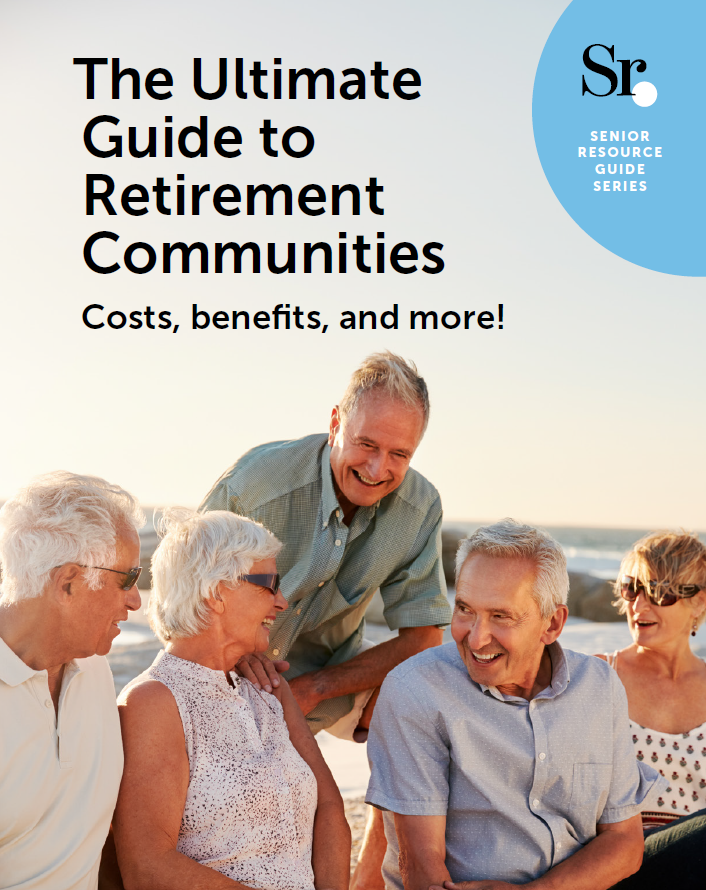
The Ultimate Guide to Retirement Communities
Get The Guide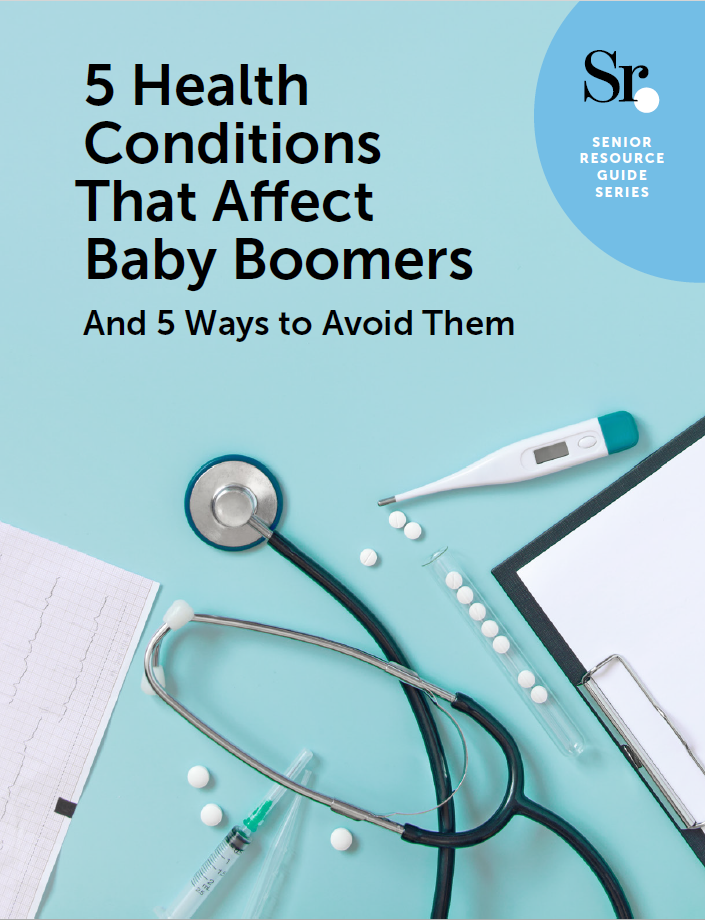
5 Health Conditions That Affect Baby Boomers and 5 Ways to Avoid Them
Get The Guide
Ultimate Estate Planning Checklist & Guide
Get The Guide